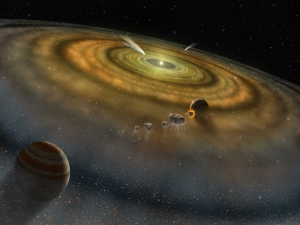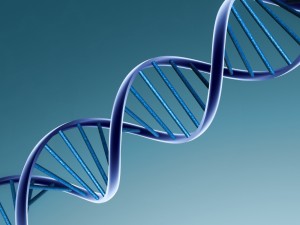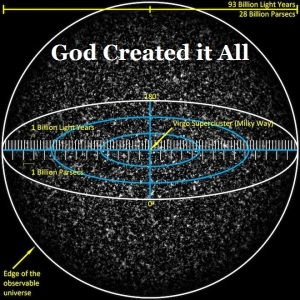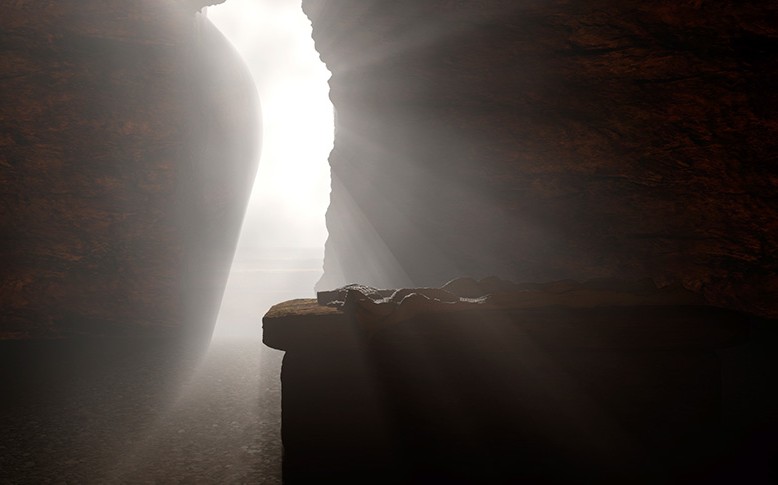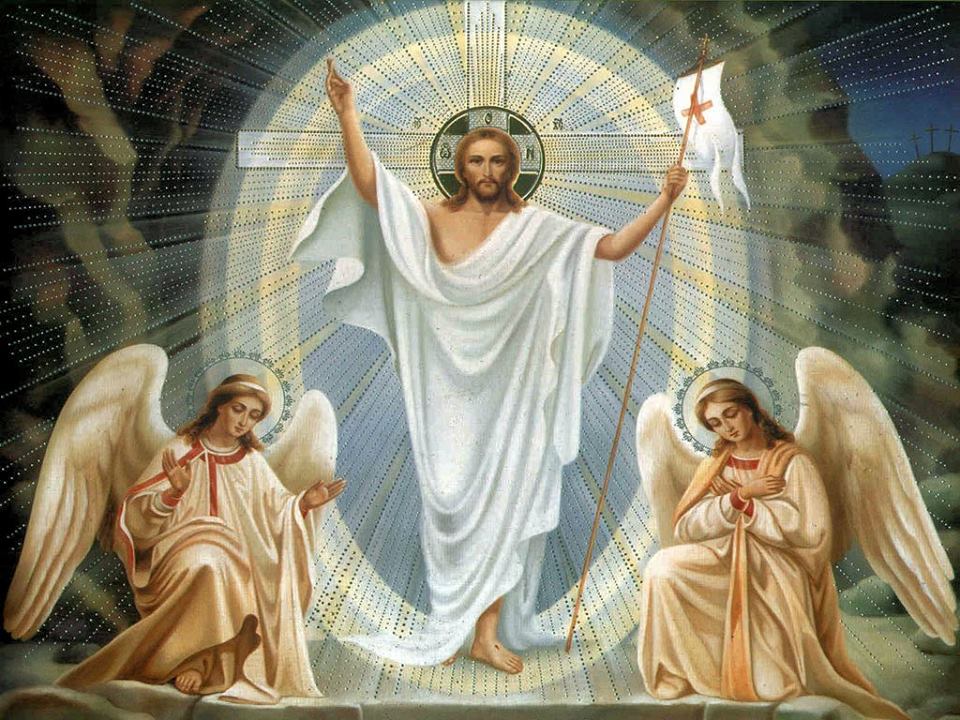Many advocate that life and the universe are all the result of one cosmic mistake. Renowned atheist Richard Dawkins claimed that “Darwin made it possible to be an intellectually fulfilled atheist.”[1] In fact, many would claim that there is no longer a need to think that God created the universe and everything in it. However, what exactly would one expect to find if God actually did create the universe? It seems that the secularist is making a great and flawed mistake as they are not considering what attributes that a universe that came by a Creator would possess. This post will consider some of the attributes that the universe should possess if a Creator really did create the universe and will show that the universe holds the attributes that point to the involvement of a Creator.
Expect to Find Information
Computer programmers use information to create a virtual world. If one could step inside such a world, one would find a world replete with information. While there may be glitches here and there, things would operate according to designed processes and procedures. If someone created our universe, we should expect to find much of the same. That is precisely what one discovers. Consider the human DNA, John Lennox notes that “writing on paper, computer software and DNA have in common the fact that they encode a ‘message.'”[2] The universe is strewn with information. From the laws governing the universe to the laws governing biology, the universe is replete with information which screams forth to humanity, “there is a Creator.”
Expect to Find a Beginning
Due to the advent of quantum physics, the universe’s beginning has become a hot-button topic. However, much to the atheist’s chagrin, there is a mathematical theorem that dictates that the universe had to possess an absolute beginning. That theorem is termed the BVG theorem. It is such that, as Spitzer notes of Alexander Vilenkin (one of the advocates of the BVG theorem), that “the proof is valid practically independently of the physics of any universe, and he is further claiming that such a universe without a beginning is impossible.“[3] The atheist would argue that something had to exist beyond the scope of such a universe. The theist would also admit that there was something, rather Someone, who existed before any physical universe began (i.e. God). Thus, if God created the universe, one would expect that God would “create the heavens and the earth” (Genesis 1:1) from nothing. Such is what one finds with the origin of the universe.
Expect to Find Order
If God created the universe, then one would expect to find order even in the midst of chaos. Going back to the computer program analogy; if one could enter a program, one might find things in the virtual world to have a distinct purpose. While some may not know why a particular thing had a purpose while in the program, the programmer would know as he or she created the virtual object. A governing order to the system would exist. Much the same, one finds governing systems throughout the universe. In fact, “Our universe is governed by five kinds of constants: A) constants of space and time, B) energy constants, C) individuating constants, D) large-scale constants, and E) fine-structure constants.”[4] Since one finds order throughout the universe, then one would expect a Creator to exist.
Expect to Find Similarities in Creation
When one reads a work by a particular author, one will notice the writer’s particular writing style. If the writer’s style is known well enough, then the observant reader will be able to select the author’s work simply by identifying the style of writing. If God created the universe, then one might expect to find similarities in God’s creation. Neo-Darwinists would claim that the “mechanism of biological evolution is natural selection, a totally random process that works through natural reproduction.”[5] Yet, there seems to be an oxymoron from the very beginning. Nature is understood to be a set of living and non-living things. Thus, nature is not a living entity. But, the term selection is used to dictate something that can only stem from a living being. Could it not be that the similarities found between different species of animals points to a particular style of the Creator? The Bible proclaims that God directs creation by His word. The psalmist proclaims, “The heavens were made by the word of the Lord, and all the stars, by the breath of His mouth” (Psalm 33:6). God speaks and He introduces information into the physical world. Thus, one would not expect to find a large physical hand coming down from the heavens rearranging things. One would expect to find God introducing particular information, or even particular beings, by the power of His spoken word. Therefore, the similarities in creation point to the creative style of God.
Expect to Find Divine Revelation
If God created the world, one would expect to find that God had revealed Himself to His creation. Much to the chagrin of the materialist, God has done just that. Ultimately, God’s revelation came through Jesus Christ. Jesus, who was with God and was God from the very beginning (John 1:1), provided the ultimate path in knowing God. Therefore, one would expect a book like the Bible and a person like Jesus if God really had created the world and if God really was personal.
Expect to Find Instances of the Miraculous
If God created the universe, then one would expect to find miraculous things occur from time to time by God’s direct involvement. One would find that God would not be constrained by His creation, but creation would be constrained to Him. All one would need is one miraculous act and then one could claim that God was not only the Creator, but also the Sustainer of creation. In fact, many testimonies of the miraculous demonstrate just that very thing. Craig Keener reports that “Rex Gardner, a physician, records numerous healings verified by eyewitnesses, some with medical documentation. For example, a member of a Lutheran order of sisters was supposed to need traction for many weeks but rose immediately after prayer, though some secondary elements of her recovery took two weeks[6].”[7] The greatest miracle of all would be that of Jesus of Nazareth’s resurrection. That one event demonstrated the power of God over creation and over life itself.
Expect to Find Divine Relational Transformations
Lastly, if God created the universe, one would expect that God would be a relational God desiring to establish connections with the His creations. Through Christianity, one finds just that. Ask any legitimate Christian and one will tell of the great transformation that took place when he or she came to know God through Christ. Such transformations exhibit the grandeur of God’s involvement with His creation.
Does one find the attributes in the universe that one would expect to find if God exists? The answer is a resounding yes! Christians need to know that they should not be in fear by what scientists will find or purport by their findings. In fact, one could claim that there is a greater bias against the supernatural in the materialist paradigm, than what could ever be found in the theistic worldview. In fact, God’s existence is not only probable, it is mandated by the cumulative case built upon the design of the universe, the origin of the universe, the order of the universe, and the relational aspects that have occurred, and can occur, by calling upon the God of creation. Comfort can be found when one realizes that the God of creation desires to have a personal relationship with humanity. If God created the universe, we find everything we would expect to find. That is because God really did create our universe.
Note: This work represents the academic work of Pastor Brian Chilton. The contents of this article have been submitted to the author’s university. Any attempt to improperly use the information found within this article for academic papers without proper citation may result in charges of plagiarism.
Bibliography
All Scripture, unless otherwise noted, comes from the Holman Christian Standard Bible. Nashville: Holman Bible Publishers, 2009.
Dawkins, Richard. The Blind Watchmaker. London, NY: W. W. Norton, 1986. In John S. Feinberg. No One Like Him: The Doctrine of God, Foundations for Evangelical Theology. Wheaton: Crossway, 2001.
Feinberg, John S. No One Like Him: The Doctrine of God, Foundations of Evangelical Theology. Wheaton: Crossway, 2001.
Gardner, Rex. Healing Miracles: A Doctor Investigates. London: Darton, Longman and Todd, 1986. In Craig S. Keener. Miracles: The Credibility of the New Testament Accounts, Volume 1. Grand Rapids: Baker, 2011.
Keener, Craig S. Miracles: The Credibility of the New Testament Accounts, Volume 1. Grand Rapids: Baker, 2011.
Lennox, John. God’s Undertaker: Has Science Buried God? Oxford: Lion, 2009.
Spitzner, Robert J. New Proofs for the Existence of God: Contributions of Contemporary Physics and Philosophy. Grand Rapids, Cambridge: Wm. B. Eerdmans, 2010.
Copyright. Pastor Brian Chilton. 2014.
_____________________________________________________________________________________
[1] Richard Dawkins, The Blind Watchmaker (London, NY: W. W. Norton, 1986), 6-7, in John S. Feinberg, No One Like Him: The Doctrine of God, Foundations for Evangelical Theology (Wheaton: Crossway, 2001), 543.
[2] John Lennox, God’s Undertaker: Has Science Buried God? (Oxford: Lion, 2009), 56.
[3] Robert J. Spitzner, New Proofs for the Existence of God: Contributions of Contemporary Physics and Philosophy (Grand Rapids, Cambridge: Wm. B. Eerdmans, 2010), 36.
[4] Ibid, 53.
[5] John S. Feinberg, No One Like Him: The Doctrine of God, Foundations of Evangelical Theology (Wheaton: Crossway, 2001), 544.
[6] Rex Gardner, Healing Miracles: A Doctor Investigates (London: Darton, Longman and Todd, 1986), 77, in Craig S. Keener, Miracles: The Credibility of the New Testament Accounts, Volume 1 (Grand Rapids: Baker, 2011), 433.
[7] Craig S. Keener, Miracles: The Credibility of the New Testament Accounts, Volume 1 (Grand Rapids: Baker, 2011), 433.


